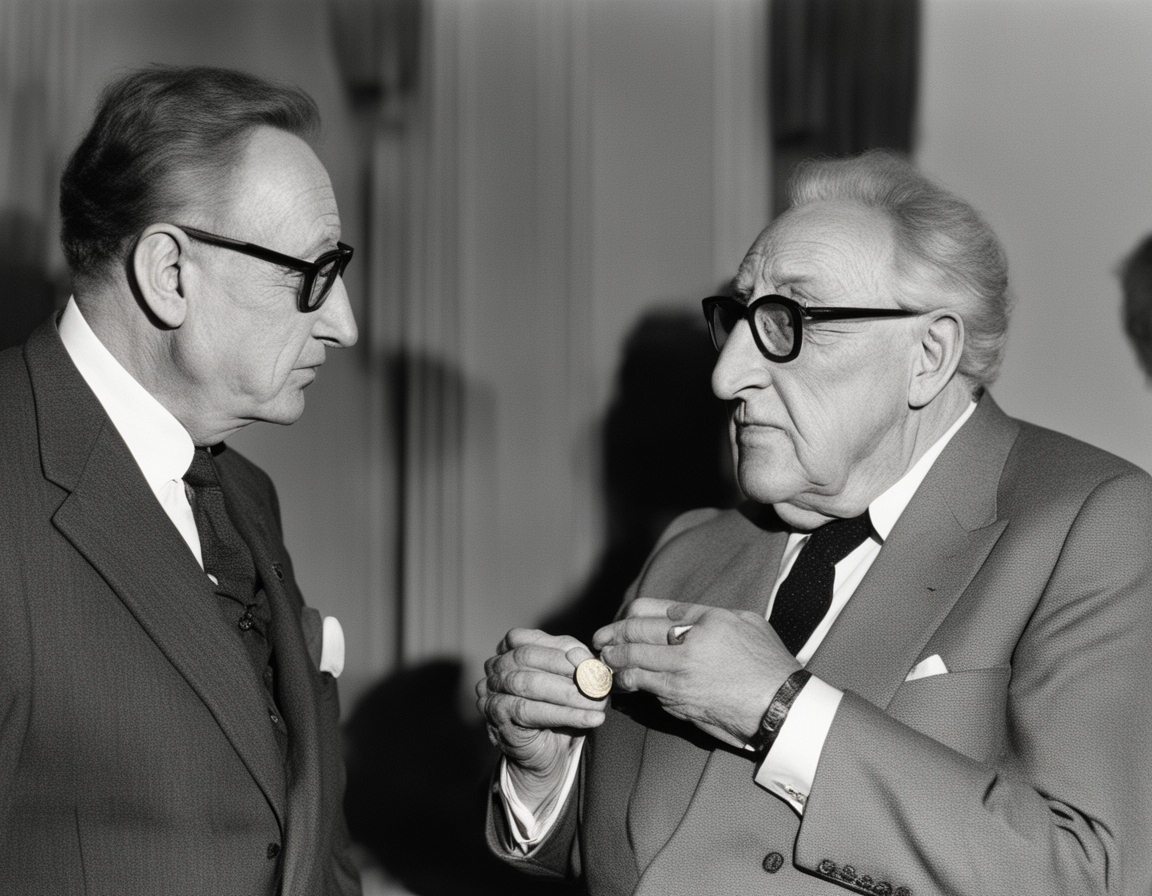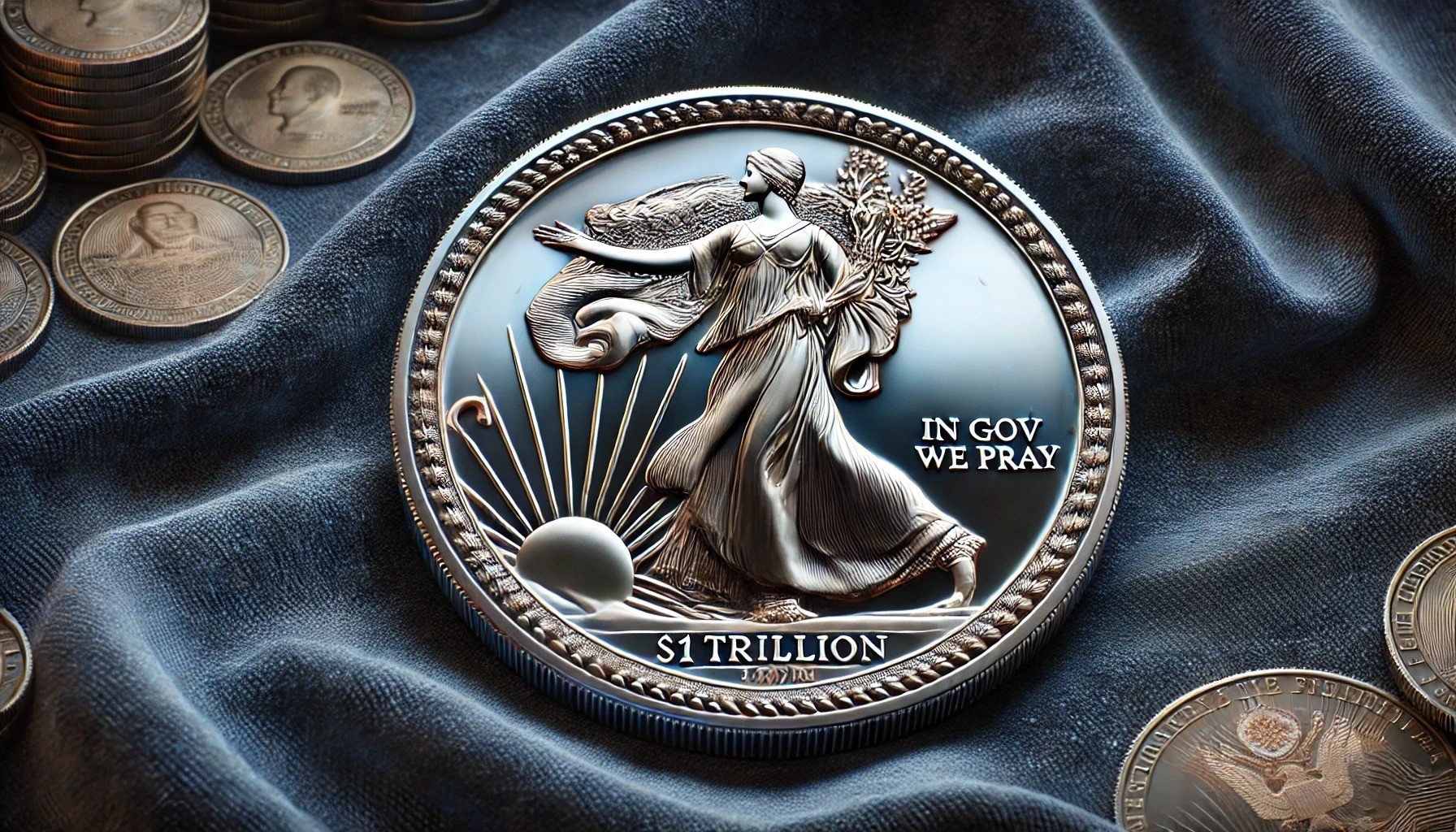(Chris Powell, Money Metals News Service) This week, the brilliant journalist and financial analyst Mike Maharrey of Money Metals revisited the recent dream of inflationists…
…to increase the U.S. money supply by means of the U.S. government’s creation of one or two platinum coins with trillion-dollar denominations.
The idea would have the U.S. Treasury Department mint the coins and deposit them with the Federal Reserve, whereupon the Fed could create and distribute U.S. dollars matching the trillion-dollar deposits.

Since a longstanding obscure statute authorizes the Treasury to mint platinum coins of any denomination, this would be a way of increasing the U.S. money supply in a big way without addressing the stupendous and rapidly growing U.S. government debt and without obtaining approval from Congress.
But the trillion-dollar coin idea is similar to a policy change that gold advocates long have been rooting for: a formal revaluation of gold by governments and central banks, including the U.S. Treasury and Federal Reserve.
For if the U.S. government really has full control over what it long has claimed — a reserve of 8,133 tonnes of gold — gold revaluation also could support a lot of money creation.
Gold researcher Jan Nieuwenhuis has been noting for months that many governments and central banks recognize the money-creation potential of gold revaluation and provide for it explicitly with gold revaluation accounts.
Back in 2012, the U.S. economists Paul Brodsky and Lee Quaintance described the potential of gold revaluation.
They even hypothesized that it was already the plan of major central banks, by which they would redistribute gold reserves among themselves and then with gold revaluation devalue government debt and society’s debts generally while reliquefying themselves:
Writing in 2013 under a pen name — Koos Jansen — Nieuwenhuis called attention to a discussion of gold revaluation at the highest levels of the U.S. State Department in 1974, where Assistant Undersecretary of State Thomas O. Enders explained to Secretary of State Henry Kissinger that gold reserves are the crucial “reserve-creating instrument” of government.

Enders said Western European governments, having then acquired more gold than the U.S. government had, were in a position to control not only the gold price but also, through gold revaluation, the price of all currencies and assets.
Enders told Kissinger that to protect the dollar and its power in the world, the United States had to prevent Western European governments from revaluing gold and indeed had to kick gold out of the world financial system entirely.
“It’s against our interest to have gold in the system because for it to remain there it would result in it being evaluated periodically,” Enders said.
“Although we have still some substantial gold holdings — about $11 billion — a larger part of the official gold in the world is concentrated in Western Europe. This gives them the dominant position in world reserves and the dominant means of creating reserves. We’ve been trying to get away from that into a system in which we can control. …”
Read more here.
So the U.S. government might much prefer to “create reserves” via the gimmick of trillion-dollar platinum coins rather than via gold revaluation because the platinum coins would restrict an increase in reserves to the Federal Reserve and the Treasury Department, while a general revaluation of gold would increase the reserves of all governments and central banks holding gold.
That is, gold revaluation would be a far more democratic mechanism of money creation and debt relief or default.
As is suggested by the slow but steady international trend away from U.S. dollars and U.S. government debt and into gold, acknowledged this week by the Japanese news service Nikkei, much of the world has caught on to the U.S. government’s gold price suppression policy. GATA’s work exposing the policy has had a lot to do with this.
The world has not caught on to it because of the work of mainstream financial news organizations and mainstream market analysts, who have refused to report the proof and other evidence of gold price suppression policy, which GATA has compiled here.
Those news organizations and analysts know all about gold price suppression policy because GATA repeatedly has shown them the documentation. They are corrupt, the tools of governments and big money.
But history is that the bad guys always go too far, and maybe with gold price suppression, they have gone too far already, exploiting poor, developing, commodity-producing nations for the benefit of rich nations and particularly for the benefit of the United States, whose extravagant debt is to a great extent a brutal tax on the rest of the world, a modern but little-understood form of slavery.

For as the poet warned almost two centuries ago:
Truth forever on the scaffold, Wrong forever on the throne,
Yet that scaffold sways the future, and, behind the dim unknown,
Standeth God within the shadow, keeping watch above his own.
Chris Powell is a political columnist and former managing editor at the Journal Inquirer, a daily newspaper in Manchester, Connecticut, USA, where he has worked since graduating from high school in 1967. His column is published in newspapers throughout Connecticut. He is also secretary/treasurer of the Gold Anti-Trust Action Committee Inc., (GATA) which he co-founded in 1999 to expose and oppose the rigging of the gold market by Western central banks and their investment bank agents.

